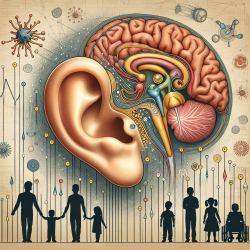The Role of Mentorship in Professional Development
In the ever-evolving field of speech-language pathology, continuous professional development is crucial for practitioners aiming to provide the best outcomes for children. The recent research article, Transition Complete: On the Work We do and the Value of Good Mentors, underscores the significant impact that mentorship can have on professional growth and skill enhancement.
Understanding the Research
Authored by John H. Curry and Sean R. Jackson, the article delves into the transformative power of mentorship within educational technology. It highlights how mentors can guide practitioners through the complexities of technology integration, ultimately enhancing their ability to implement effective interventions.
Key Takeaways for Practitioners
The research presents several key findings that practitioners in speech-language pathology can leverage to improve their practice:
- Guidance Through Change: Mentors provide invaluable support as practitioners navigate changes in technology and methodology, ensuring they remain at the forefront of best practices.
- Skill Enhancement: Through mentorship, practitioners can refine their skills, gaining insights into innovative techniques and approaches that can be applied in therapy sessions.
- Networking Opportunities: Mentors often introduce mentees to a broader professional network, opening doors to collaborations and further learning opportunities.
Implementing Research Outcomes
For practitioners looking to enhance their skills, the research suggests several actionable steps:
- Seek Out Mentorship: Actively pursue mentorship opportunities within your professional community. Whether through formal programs or informal relationships, mentors can provide guidance and support tailored to your career goals.
- Engage in Continuous Learning: Stay informed about the latest research and developments in your field. This proactive approach ensures you remain knowledgeable about emerging trends and technologies.
- Participate in Professional Networks: Join professional organizations and attend conferences to connect with peers and mentors. These interactions can lead to valuable insights and collaborations.
Conclusion
In conclusion, the research by Curry and Jackson highlights the profound impact that mentorship can have on professional development. By actively seeking mentorship and engaging in continuous learning, practitioners in speech-language pathology can enhance their skills and ultimately create better outcomes for the children they serve.
To read the original research paper, please follow this link: Transition Complete: On the Work We do and the Value of Good Mentors.










